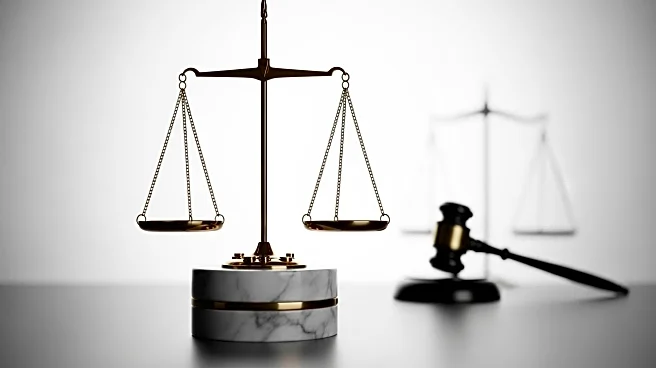What's Happening?
The US Supreme Court has declined to hear Ghislaine Maxwell's appeal against her conviction related to sex-trafficking charges involving Jeffrey Epstein. Maxwell was sentenced to 20 years in prison for her role in recruiting and grooming underage girls for Epstein. Her legal team expressed disappointment but vowed to continue exploring legal avenues. The rejection of the appeal means Maxwell's sentence remains in place unless a presidential pardon is granted. Maxwell was convicted in 2021 for facilitating Epstein's abuse, with prosecutors alleging she recruited and groomed girls between 1994 and 2004.
Why It's Important?
The Supreme Court's decision to reject Maxwell's appeal underscores the finality of her conviction and sentence, reinforcing the legal consequences for those involved in sex-trafficking schemes. This decision may provide closure for victims and their families, affirming the justice system's commitment to holding perpetrators accountable. The case has been a focal point in discussions about the legal system's handling of high-profile sex-trafficking cases, potentially influencing future prosecutions and public policy on victim protection and offender punishment.
What's Next?
Maxwell's legal team may seek other avenues, such as a presidential pardon, although the White House has stated no leniency is being considered. The rejection of the appeal could lead to further investigations into Maxwell's knowledge of Epstein's operations, potentially implicating other individuals. The decision may also prompt legislative discussions on improving legal frameworks for prosecuting sex-trafficking cases, ensuring justice for victims and preventing future abuses.









